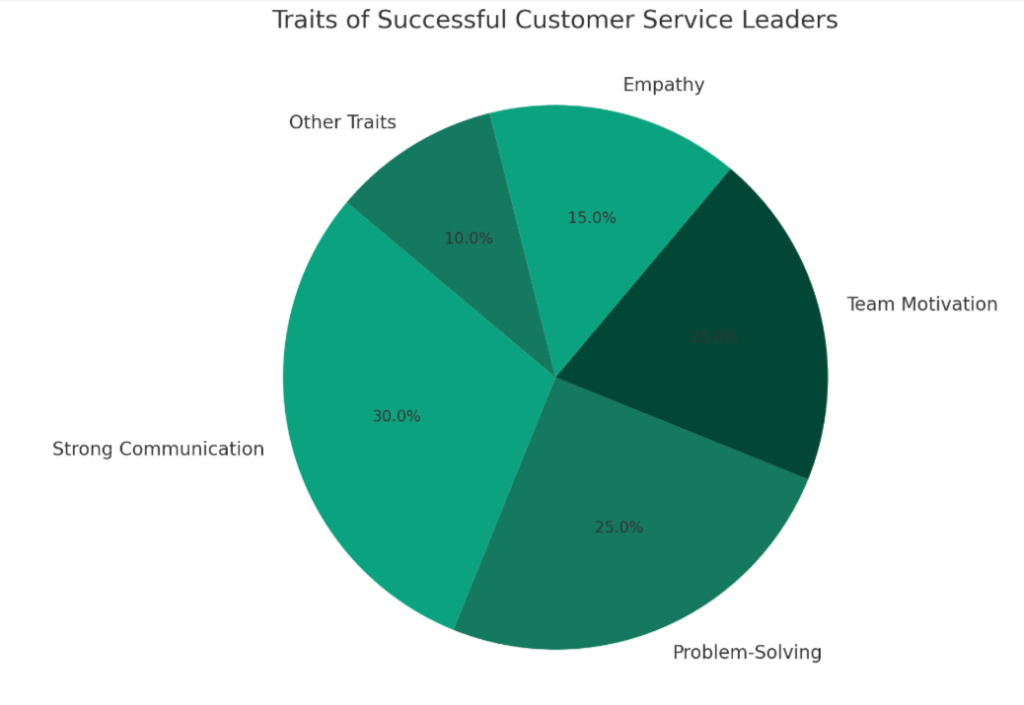Steering the Ship: Mastering Management in Live Chat Environments
Having a great leader at the helm can turn an average live chat team into customer service superstars. A study shows that effective leadership is key in boosting employee engagement and satisfaction.
This article will guide you through transforming your management style to inspire exceptional performance in live chat interactions. Dive in for success secrets!
Key Takeaways
- Great leaders in live chat inspire their teams by modeling empathy, effective communication, and proactive problem-solving. They set clear expectations and provide the support needed for agents to give top-tier service.
- Fostering a positive work environment through respect, leadership support, autonomy in decision – making, and growth opportunities is essential for agent happiness and improved customer experiences.
- Avoiding common pitfalls like blaming others for mistakes, micromanagement, and emotional decision – making can enhance team morale and productivity. Instead, successful managers take accountability and lead with transparency.
- Empowering agents to find solutions boosts innovation within the team. Providing training helps them stay ahead of industry trends while developing critical thinking skills crucial for delivering outstanding customer service.
- Successful customer service managers are characterized by strong communication abilities, effective problem-solving strategies, the capacity to motivate their teams, relationship-building skills, conflict navigation expertise, and continuous innovation that drives overall success in live chat platforms.
The Impact of Leadership on Customer Service Success
Effective leadership plays a crucial role in influencing customer service. The best leadership style for customer service focuses on characteristics such as empathy, communication, and problem-solving skills.
How leadership influences customer service
Good leadership sets the tone for customer service by establishing a culture of excellence. Leaders who prioritize customer satisfaction model this focus to their teams, inspiring agents to deliver top-notch service.
They provide clear direction and expectations, which are crucial for maintaining high standards across all client interactions. By valuing customers as central to success, leaders cultivate environments where exceptional support is the norm.
Managers skilled in problem-solving and decision-making equip their teams with the tools they need to handle inquiries efficiently. These leaders understand that empowering employees leads to more personalized and effective solutions for customers.
When team members feel supported in their roles, it reflects positively on every interaction they have, enhancing overall service quality and fostering loyalty among clients.
Best leadership style for customer service
The best leadership style for customer service is one that emphasizes empathy and adaptability. Leaders who excel in this area often practice servant leadership, where they prioritize the needs of their team and customers above their own.
By focusing on support rather than control, these leaders foster an environment where agents feel valued and empowered to deliver exceptional customer experiences.
Effective leaders in customer service inspire motivation by setting clear expectations and encouraging innovation within the team. They understand that each interaction with a client can shape the company’s reputation, so they cultivate strong communication skills across their teams.
Moreover, they promote accountability by leading through example, ensuring every member knows how their role contributes to the overall success of the organization. Such a proactive approach allows for quick problem-solving and decision-making, which are crucial in maintaining high standards of service excellence.
Characteristics of excellent customer service leaders
Excellent customer service leaders stand out with their exceptional communication skills. They listen actively and speak clearly, making sure everyone feels heard and understood. These leaders are masters at building relationships.
They prioritize getting to know their team members personally, creating a supportive environment where trust thrives. Good decision-making is another hallmark, as they quickly assess situations and make choices that benefit the entire team.
Leaders in this field also excel in problem-solving and conflict resolution. They approach challenges calmly and creatively, always looking for innovative solutions that will improve customer experiences.
Their motivation techniques inspire others to give their best, fostering an atmosphere of high performance and ongoing personal development. As they evaluate how well the team works together, they use effective feedback to guide improvements without placing blame.
Next up: we’ll delve into strategies for promoting team happiness that enhance overall customer experience (CX).
Strategies for Team Happiness and Better CX
Treating agents with respect, providing leadership support, empowering agents to find solutions, and creating opportunities for internal growth are essential strategies for fostering a happy team and delivering exceptional customer experiences.
Treating agents with respect
Respecting agents is vital for a positive work environment. Acknowledging their efforts and valuing their contributions fosters a culture of trust and mutual respect. Encouraging open communication and listening to their feedback ensures that they feel seen and heard, ultimately leading to higher job satisfaction and increased productivity.
Demonstrating respect involves recognizing the expertise of each team member and allowing them autonomy in decision-making within their scope of work. This not only boosts morale but also empowers agents to take ownership of customer interactions, resulting in enhanced customer satisfaction and loyalty.
Providing leadership support
Customer service leaders can foster a positive work environment by providing guidance and support to their teams. This involves actively listening to agents’ concerns, offering constructive feedback, and being available to assist with challenges.
By demonstrating a commitment to the team’s success, leaders can empower agents to excel in customer interactions and problem-solving. Additionally, creating opportunities for skill development and career advancement shows dedication to the growth of each team member.
Supportive leadership also entails advocating for resources that enable agents to provide exceptional customer experiences. This may involve investing in training programs, implementing efficient communication channels, or aligning team goals with organizational objectives.

Empowering agents to find solutions
Empowering agents to find solutions is crucial for fostering a culture of innovation and problem-solving within the customer service team. By providing support and autonomy, leaders can motivate agents to think critically and take ownership of resolving customer issues efficiently.
Encouraging open communication channels and brainstorming sessions allows agents to share ideas, collaborate on solutions, and adapt their approaches based on real-time feedback, ultimately enhancing the overall customer experience.
Offering opportunities for skill development through training programs or mentorship initiatives enables agents to build confidence in their decision-making abilities while staying updated with industry best practices.
Creating opportunities for internal growth
Opportunities for internal growth drive a team’s motivation and dedication. Providing ongoing training sessions on leadership, customer service excellence, and communication skills equips employees with the tools needed to excel in their roles.
Implementing mentoring and coaching programs fosters relationships among team members, fostering an environment of collaboration and support.
Encouraging participation in networking strategies empowers individuals to expand their professional connections. Giving employees opportunities to take on new challenges or projects helps them develop problem-solving and innovation skills, contributing to personal development and overall team success.
Mistakes and Lessons Learned From Customer Service Leaders
Blaming others for mistakes, micromanagement, and making decisions based on emotions are common mistakes made by customer service leaders. Learning from these errors helps managers to delegate tasks effectively and correct mistakes, leading to success in customer service leadership.
Blaming others for mistakes
Blaming others for mistakes undermines team morale and erodes trust within the organization. It impedes problem-solving and hinders innovation, creating a toxic work environment. Effective leaders take accountability for errors, fostering a culture of transparency and growth.
Encouraging open conversations about missteps enables teams to learn from their mistakes and develop effective solutions, ultimately driving success.
Furthermore, holding individuals accountable in a constructive manner can lead to improved performance and productivity. By refraining from placing blame, leaders empower their teams to take ownership of their actions, contributing to a more positive and cohesive working environment.
Micromanagement
When leaders excessively control and closely monitor every task and decision made by their team, it can lead to micromanagement. This behavior not only undermines trust but also stifles creativity, reduces motivation, and hampers productivity.
Micromanaging customer service teams can result in stifled innovation, demotivated agents, and decreased team morale. Effective leadership involves empowering individuals to make decisions within set boundaries while providing guidance when needed.
Empowering employees fosters a more autonomous work environment where they feel trusted and valued.
Making decisions based on emotions
Effective leaders in customer service understand the importance of making decisions based on logic and reason rather than emotions. Emotion-driven decisions can lead to inconsistent outcomes, as well as potential bias and unfairness.
By prioritizing rationality over sentiment, leaders can ensure that their choices are aligned with strategic objectives and foster a culture of fairness and equity among team members.
Leaders who make decisions based on emotions may struggle with maintaining consistent standards and expectations for their team. This approach could also impact the overall morale of the team, as it may create an environment where decision-making appears unpredictable or favoritism-based.
Delegating tasks effectively and correcting mistakes
Delegating tasks effectively is crucial for a manager’s success in the customer service realm. An adept leader skillfully assigns responsibilities based on team members’ strengths and weaknesses, ensuring tasks are completed efficiently.
Correcting mistakes promptly is equally important; it fosters an environment of accountability and continuous improvement. This approach enables the team to learn from errors and grow their problem-solving skills, ultimately contributing to enhanced customer service delivery.
Moreover, when leaders take ownership of mistakes and rectify them transparently, they set a positive example for their team members. It builds trust within the team and strengthens their respect for leadership.
Acknowledging errors openly demonstrates humility and instills a culture of self-improvement within the support center personnel.

Traits of Successful Customer Service Leaders and Conclusion.
Traits of successful customer service leaders include clear communication, effective problem-solving, and the ability to motivate their team. They prioritize relationships, navigate conflicts effectively, and innovate to drive success.
A manager’s role in customer service success relies on their accountability in leadership, time management skills, and performance evaluation. With strong networking strategies and mentoring support, they can rise to great heights in live chat leadership.

